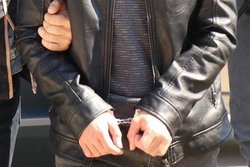 Iranian authorities have arrested four members of a Zionist group engaging in corrupt evangelism and promotion of a falsified version of Christianity in the province of Alborz.
Iranian authorities have arrested four members of a Zionist group engaging in corrupt evangelism and promotion of a falsified version of Christianity in the province of Alborz. RNA - “These people were in systematic contact with elements based outside the country, and spread corrupt Christian beliefs and ideas,” Tasnim news agency reported on Saturday.
The agency said the Christian faithful in Alborz had officially protested against the propagation of the falsified Christian cultism throughout the province.
The arrests came following the detention of five members of the group in the province on Wednesday.
According to Tasnim, they engaged in misleading the people of faith, including Muslims, by setting up cults and home churches.
Zionists and evangelical extremists have historically found good friends in each other as they have targeted practicing Jews and Christians.
Describing the bad influence of Zionism on Judaism, a US-based rabbi told Press TV in late October that Zionists had “hijacked the identity” of Jews in favor of their goals.
Rabbi Dovid Weiss said they were pushing ahead with their policy of grabbing Palestinian properties “in the name of the Jewish people and the Jewish religion.”
According to the Islamic constitution of Iran, churches, synagogues and temples of divine religions are officially recognized and are free to operate and serve their congregations.
Iran has the biggest Jewish population of any country in the Middle East outside Israel and one of the biggest Christian communities in the region.
They have lived side by side with other Iranians for millennia and freely practiced their religions.
Iran's Armenians and Assyro-Chaldeans, who practice Christianity, as well as its Jews and Zoroastrians are each represented by their lawmakers in the parliament.
847/940